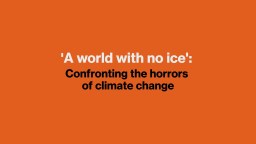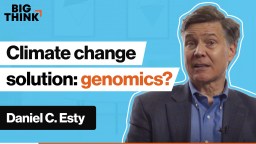Cheryl Heller: I just this weekend was at an event called Drawdown Learn with Paul Hawken based on his book Drawdown. And the work that he and the group of scientists have done in explaining what we need to do to drawdown global warming. And what's remarkable is that it has become practical, in other words they have proven that refrigeration and the chemicals we use in refrigeration is the number one. Paul Hawken's talked a lot about the language we use to describe climate change. And his principal point was that we treat it as an "evil that we should be afraid of", the "war against climate change" or the "battle against climate change". And he went through a whole list of the kinds of expressions we use.
It's clear when it comes to climate change, as it's been clear about drunk driving and smoking and all the other things that we want people not to do, scaring them does not work. And the more frightened they become, and the more helpless they feel or powerless they feel, the more they shut down.
What's brilliant about Drawdown is you don't need to speak in frightening generalities about climate change, "we're all going to die and we have ten years," and all that stuff we talked about, you can say—depending on what someone is interested in—that educating young girls is actually, I forget it's number three or number eight in their list of what would effect climate change.
And somebody on Paul Hawkins' team was also talking about this, you can immediately get into political battles and just dead ends when you use the words "climate change". If you talk about a specific initiative and you explain what it is and you talk to people who have a vested interest in it—farmers have a vested interest in aspects of climate change, coastal cities have a vested interest in certain aspects of climate change—When you can make it real and when you can talk about things that actually could be accomplished, you shift from vague and fearful to concrete and actionable. And that's where we are now we know the kinds of programs that will actually make a difference.
What I hope the book does is make it clear that leading change and being able to act on the things that matter to people is not inaccessible, it doesn't require a special degree, it doesn't require superhuman power, people always say ,"I can't draw a straight line," it has nothing to do with that, to become a designer! I hope that people see that it is possible to step up, and that all that's really needed is for someone to decide to do it and to start where they are, to look at the reality of the things around them and to think about who needs to be part of a conversation and to start a conversation. Meg Wheatly talks about the fact that all change begins with a conversation between people, and that's really how to begin the process of social change as well.





